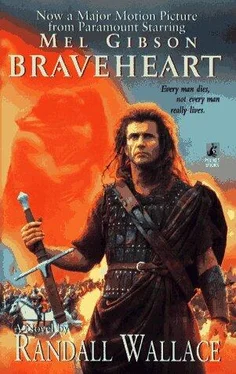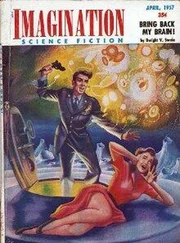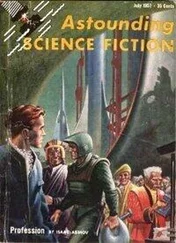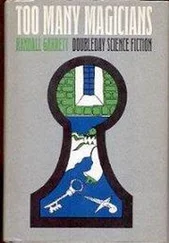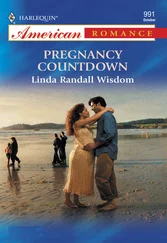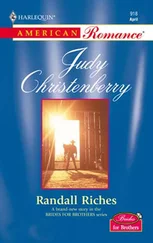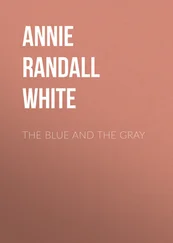In a quick scramble, the soldiers hauled Wallace outside. A wagon with a team of horses was just then rattling up from its place of concealment within the manor’s hedge maze. In seconds they had Wallace lashed down on the wagon’s wood floor.
Stephen and Hamish, bloody and still stunned, staggered from the house in blind fury. Their horses were gone, and the wagon was already to the top of the hill.
Hamish ran after it.
Stephen knew it was hopeless. “You’ll never catch them!” he shouted. “You’ll never…” He watched Hamish running, ready to explode his heart in pursuit.
And Stephen ran, too.
DRIED BLOOD STILL MATTING HIS HAIR, ROBERT THE BRUCE surged up the stairs of his father’s tower and tore open the door to the chamber. “You did this! You!” he screamed, grabbing at his father, too furious to flinch from the leprous flesh. “I hate you, you rotting bastard!”
His father was calm, no pain in his body, no pain anywhere. “Longshanks required Wallace,” he said. “So did our nobles. That was the price of our peace. And your crown.”
Robert shook him. “Die! I want you to die!”
“Soon enough, I’ll be dead. And you’ll be king.”
“I want nothing of you! You’re no man! And you are not my father!”
But the cold steel at the soul of the leper stiffened in him one more time. “You are my son. And you have always known my mind.”
“No… no,” young Robert said. “You deceived me.”
“You let yourself be deceived. But in your heart, you always knew what had to happen. The only thing that could happen.”
Robert’s hands fell away from his father. He stepped backward; even his legs had lost their will. He staggered to the wall and groped at it for support. All he could think was that he no longer cared to live in this world. And suddenly it was his father who seemed to have all the strength.
“At last you know what it means to hate and how to deal with enemies,” the elder Bruce said. “Now you are ready to be a king.”
WILLIAM WALLACE WAS CONVEYED TO LONDON STRAPPED to the spine of an unsaddled horse, his head bare to the sun. a procession of heavily armed English soldiers paraded with him, as country people came out to jeer the Scotsman who had sent such terror through their bones.
“Don’t look so fearsome, does he?!” some shouted, while others screamed, “Murderer!” and many more said nothing at all but threw rocks against his battered face and back or rotten fruit or worse.
While in the royal palace, Prince Edward inspected his father, who lay semiconscious in bed, his breath rattling ominously in his chest. The king knew of the successful capture of his hated enemy, at least he had been informed of it before he had another attack of coughing and smothering and his eyes began to roll separately from each other and he collapsed into the stupor in which he now lay. Longshanks was upon his deathbed, of that his son was certain.
Edward approved of this condition. He gave no instructions to the servants keeping vigil at the bedside.
As the prince left his father’s apartments and stepped out onto the corridor, the princess hurried up to her husband and followed him as he moved toward his own rooms. “Is it true?” she asked, barely able to keep her breath. “Wallace is captured?”
“Simply because he eluded your trap, do you think he is more than a man? My father is dying. Perhaps you should think of our coronation,” Edward answered and continued his march down the hall.
“When will his trial be?” she persisted.
“Wallace’s? For treason there is no trial. Tomorrow he will be charged, then executed.” With a faint smile, he shut his bedroom door in her face.
WILLIAM WALLACE WAS TRIED IN WESTMINSTER HALL—IF what occurred can be called a trial. He was not allowed to speak during the proceedings meant to establish his guilt and his punishment, and neither he nor anyone who might have dared to step forward for him was permitted to offer any defense or arguments on his behalf. Wallace made no effort to object to these conditions and stood in silence, gazing up at the windows as six royal magistrates in scarlet robes decried against him, shouting accusations of an endless litany of atrocities.
The slaughter of his enemies, in battle or in ambush, Wallace would never deny. But one of the charges hurled against him that day bears witness to the posture of his judges. They repeated the claim—spread through all of Britain after the sacking of York—that Wallace had spared the nuns of that city in order to force them to dance naked before his troops. The lie in fact attested to a deeper truth, for the propaganda of the dancing nuns had been spread by Longshanks’s advisors in an attempt to explain the fact, widely known, that Wallace had spared the lives of the nuns at York, whereas Longshanks, in sacking Scottish towns, had spared no one at all.
Finally the chief of the royal judges boomed out, “William Wallace! You stand in taint of high treason. You will be conducted to a place of execution, where you will be hanged, disemboweled, castrated, and beheaded! Have you anything to say?”
Wallace did not object to the punishment; it was the charge itself that he rejected. “Treason?” he asked. “Against whom?”
“Against thy king, thou vile fool!”
“Never, in my whole life, did I swear allegiance to your king—”
“It matters not, he is thy king!” the magistrate tried to shout over him.
“—while many who serve him have taken and broken his oath many times. I cannot commit treason if I have never been his subject!”
“Confess, and you may receive a quick death! Deny, and you must be purified by pain! Do you confess?” The magistrate’s voice deepened with finality: “Do you confess?!”
“I do not confess,” Wallace said.
“Then you shall receive thy purification,” said the lord high magistrate who would oversee the execution. Then he added, “And in the end, I promise you will beg for the ax.”
WITHIN THE TOWER OF LONDON, WILLIAM WALLACE WAS alone in his cell, still in the garish manacles of hand and foot he had worn for the last week. He could not stand to his full height; the chain connecting wrists to ankles had been shortened to force him into a slight stoop meant to represent a posture of submission. But that did not affect him now; he was on his knees. “I am so afraid,” he whispered in his prayer. “Give me strength.”
Outside the cell door, the jailers jumped to their feet as the princess, with not a single guard or attendant at her side, appeared at the base of the stone stairway and strode quickly up to them. “Your—Your Highness!” the jailer stammered.
“I will see the prisoner,” she declared.
“We’ve orders from the king—”
“The king will be dead in a month! And his son is a weakling! Who do you think will rule this kingdom? Now open this door! ”
The jailers obeyed.
The princess stepped into the reeking cell. She could barely contain her shock at the sight of Wallace. “On your feet, you filth!” the head jailer shouted as he and his partner snatched the prisoner upright.
“Stop! Leave me!” the princess demanded, but still they hesitated. “There is no way out of this hell! Leave me with him!”
Reluctantly the jailers shuffled out of the cell, but they could still see her back and hear her. She looked at Wallace’s eyes and she couldn’t quite hold back her tears—dangerous tears that threatened to say too much. “M’lady… what kindness of you to visit a stranger,” Wallace said, trying to help her hide her grief.
Читать дальше
